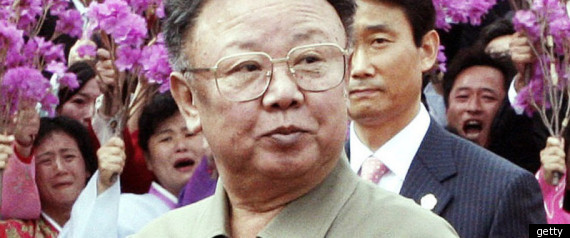Inside The Mind Of Kim Jong-Il

This is fascinating research. I do a lot of work with companies that have software that can predict what might be through the science of modeling. The work generally yields extraordinary value. But, when you apply it to the human dimension like we see below, I wonder how can leverage this kind of work for the greater good.
By Gary Stix (Click here for the original article)
What was up with a world leader who thought he could control the weather while engaging in his passion for Elizabeth Taylor movies? No one knows for sure, but a few years ago, two psychologists took a crack at a long-distance analysis. In the September 2009 edition of Behavioral Sciences of Terrorism and Political Aggression (Editor’s note: nice journal name), Frederick L. Coolidge and Daniel L. Segal tried to develop a psychological profile of the “Dear Leader” (in 1992 changed to “Dear Father”).
Coolidge had developed a means of psychological evaluation using “informants,” people who knew or had historical or other expertise about a person. This test had been used previously to assess Hitler and Saddam Hussein and had been found to have a high-level of statistical reliability.
The two psychologists used the test with a South Korean psychiatrist who was an expert on Kim Jong-il. The results showed that Kim Jong-il had an identical overall statistical measure with Hitler and Saddam on 14 personality disorders (r=7.6). (The top six of the 14 are: sadistic, paranoid, antisocial, narcissistic, schizoid and schizotypal.). Additional analysis showed that Dear Father was more like Saddam than Der Fuhrer. All three also showed evidence of psychotic thinking.
Coolidge and Segal make recommendations about how to engage in diplomatic talks with someone with this type of personality. “In negotiations with Kim Jong-il over nuclear weapons, he might trust higher-level government officials more than lower ones,” they write. “Perhaps, more reflective of Kim Jong-il’s narcissistic traits, he initially balked over six-country negotiations, demanding to meet with the United States only. It would be predicted that secondary or lower level emissaries might have immediately been at a disadvantage.”
It would also behoove negotiators, they noted, to recognize that he prides himself on the hardships the country has experienced:
“Kim Jong-il’s antisocial features, such as his fearlessness in the face of sanctions and punishment, serve to make negotiations extraordinarily difficult. Even ‘submitting to negotiations’ makes many antisocial individuals unwilling and hostile. Kim Jong-il appears to pride himself on North Korea’s independence, despite the extreme hardships it appears to place on the North Korean people. This behavior appears to emanate, in large part, from his antisocial personality pattern.”
The article itself is a good read. Carl Jung, it turns out, took a crack at analyzing Hitler. (Worth the price of admission for that factoid alone, although maybe it’s best here not to go too far into Jung’s checkered Nazi karma.)
One other such comparative analysis even looked at George Bush vs. Saddam. The Science of Who’s Bad. Better than watching “American Idol.”




 facebook.com/thomasbutta
facebook.com/thomasbutta twitter.com/thomasbutta
twitter.com/thomasbutta linkedin.com/in/tombutta
linkedin.com/in/tombutta
Recent Comments